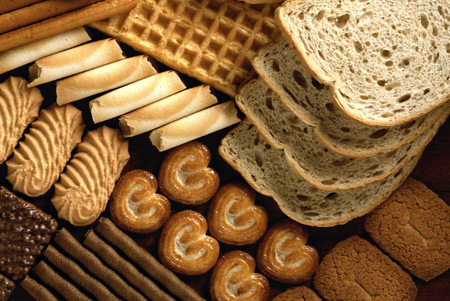Why Eating too much Carbohydrate is Bad for Your Health? Find out here

Why Eating too much Carbohydrate is Bad for Your Health? Know its effects and solution to all the problems.
Carbohydrates are the important part of our diet apart from protein and fat. And let's not forget to mention that they're delicious to eat! Pasta, bagels, cookies, cereals croissants, spaghettis, rice pudding, all the delicacies are best made out of carbs.
Carbs are the major source of energy for our tissues, muscles, and brain and you might wonder how can they cause any effect on our health! Well, they do as too much of something is always detrimental, excessive consumption of carbs is hazardous causing short-term to long-term chronic diseases.
Although our body needs carbohydrate to complete basic function, it's important to know the type of carbohydrates that are bad and those that are actually good for our health.
Here's why you need to know why eating too much carb is bad for your health!
Why Eating too much Carbohydrate is Bad for Your Health?
Carbohydrates are present in food in the form of starch, sugar, and fiber. Carbohydrates can be simple or complex containing carbon, oxygen, and hydrogen.

Consuming a carbohydrate rich diet on daily basis increases the calorie intake, spikes the sugar level in blood, brings about digestive issues, making us vulnerable to different severe health problems including diabetes, stroke, other degenerative disorders.
1. Risk of Type 2 Diabetes
Foods that are sugary and rich in calories requires insulin to balance the increased level of sugar in the blood, once they are consumed.
Insulin converts the excess glucose in the blood to a stored compound in the liver, muscles that lower the blood sugar eventually.

In the long run, your body suffers Type 2 diabetes where your body stops making enough insulin or become insensitive causing the high risk of developing Type 2 diabetes.
2. Cardiovascular Diseases
The increase in the level of sugar in our blood, due to heavy consumption of carbohydrates and refined carbs results in the generation of oxygen free radicals during the process of metabolism.
The free radicals can cause inflammation of arteries in various organs, particularly in heart vessels or arteries, leading to constriction or spasm causing heart attacks.
Similarly in the brain, various chronic degenerative diseases like Stroke and Parkinson's diseases.
3. Emotional Eating
Carbs like grains, sugar, bread have high glycemic index. What is a glycemic index? It's the ability of a carbohydrate-rich food to spike sugar in your blood. The index is a crucial marker of testing which food contains high sugar spiking potential.

Eating too much carb, makes us feel full and satisfied that ultimately leads us to crave for carbs more. This is associated with "emotional eating" as experts have found that eating carb releases happy hormone, serotonin.
And on cutting off the carbs from our diet can cause mood swings, irritability, and stress. Here's the Glycemic Index chart of different food. Have a look!

4. Too many carbs, Too Many Calories
Well, eating all those delicious rich foods comes with a caloric price. Our body needs calorie to maintain the energy level and to stay active. Each gram of carbs contains 4 calories, and once you eat a carb rich food, it can add up to hundreds of calories.

But the increase in calories causes weight gain as our body will store any extra energy as body fat and increase in body fat will make your body feel tired and hungry all the time.
5. Digestive Issues
It's natural to wonder how carbohydrate can cause digestive issues but it does cause digestive problems like diarrhea.
Different carbs are packed with dietary fiber, an indigestible carb that helps you feel satisfied after a meal playing a key role in digestion as fiber helps in loosening and softening of stool.
But if you abruptly increase your fiber intake, you might suffer digestive issues like diarrhea, bloating and bowel disorder. Also taking tons of fiber without drinking enough water can dry your stool and cause constipation.
About 25-35 grams of fiber intake is recommended daily by the University of Michigan Health System.
What is the Solution?
- Carbohydrates are not the real villains but the type of carbs you consume defines the problem.
- Eat carbohydrates with a low glycemic index like soy, fruits and green leafy veggies, milk, whole bread, lentils, oatmeal, oat bran, barley.
- Eat a balanced diet, with carbohydrate-rich food mixed with protein and fat.
- Perform aerobic exercises like walking, jogging, swimming regularly.
- Consume foods that are high in Vitamin A and E, like avocado, wheat germ, spinach that have anti-oxidant properties.
Overall you can take help from experts if you're struggling to follow a balanced diet. Stay healthy and be happy!
